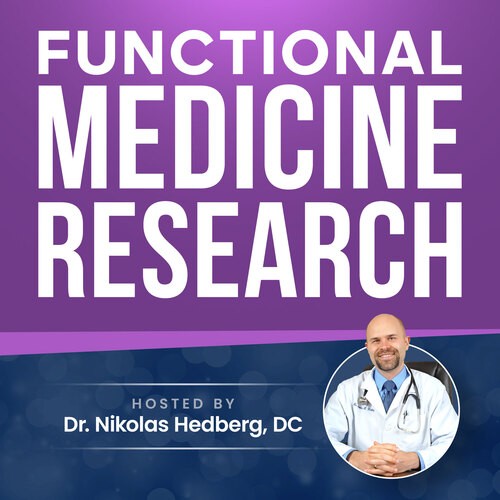
Upper Respiratory Infections and PEA (palmitoylethanolamide)
Functional Medicine Research with Dr. Nikolas Hedberg, DC
Episode · 0 Play
Episode · 8:14 · Oct 19, 2023
About
The endogenous compound PEA (palmitoylethanolamide) is a natural anti-inflammatory agent which works in affiliation with the endocannabinoid system to help modulate pain. PEA was first discovered in the 1950s after being isolated from the lipid fraction of egg yolk. In recent years, PEA research has largely focused on neuropathic pain states and mast cell related disorders. However, earlier research often was directed toward the ability of PEA to support upper respiratory health, a line of inquiry stemming from prior observations regarding the efficacy of egg yolk in preventing rheumatic fever. PEA for Cold and Flu During the 1970s, six large placebo-controlled trials were conducted to investigate PEA as a cold and flu therapy. For this research, commercial grade PEA (trade name Impulsin) was used. These early studies, which engaged close to 4,000 subjects in total, yielded remarkable results. Trials conducted during the flu season demonstrated significant efficacy in both prophylaxis and treatment, with no adverse effects reported. In a study where adult subjects took 600 mg of PEA three times per day or an identical placebo, incidence of disease over a twelve-week period was reduced by up to 40% in the PEA group. In another trial, subjects with cold or flu who took PEA missed significantly fewer days of work, and experienced significantly less fever, headache, and sore throat than subjects taking placebo. Follow-up studies designed to replicate these findings further showed a significant reduction in acute respiratory infections after administration of PEA. The ability of PEA to downmodulate proinflammatory cytokine activity was proposed as a primary mechanism of action. In the decades since this early research was performed, enhanced absorption PEA enabling higher efficacy at lower doses has been developed. One such PEA formulation, Levagen+, exhibits up to 75% increased absorption compared to commercial PEA, and has been clinically researched in humans for a variety of uses, including upper respiratory health. PEA and COVID-19 A recent, double-blind, placebo-controlled study gave 600 mg of Levagen+ PEA or placebo twice daily to non-vaccinated outpatients with verified mild to moderate COVID-19 infection. Serum inflammatory biomarkers were evaluated at baseline, and after four weeks of treatment. At the end of the study period, only subjects in the Levagen+ group exhibited significant reductions in inflammatory biomarkers, most notably in levels of P-selectin, a thromboinflammatory marker known to be elevated in cases of severe COVID and other conditions marked by increased inflammation and thrombosis, for example, cardiometabolic disease. Levagen+ is the form of PEA used in Moss Nutrition PEA Luteolin Select™. The product also contains luteolin, an antioxidant bioflavonoid shown to work synergistically with, and enhance, the benefits of PEA. Hedberg Institute members can log in to access the COVID-19, Long COVID, cold, and flu protocols. Practitioners who are interested in learning more about the Hedberg Institute Membership click here for more details. References: Keppel Hesselink JM, de Boer T, et al. Palmitoylethanolamide: A Natural Body-Own Anti-Inflammatory Agent, Effective and Safe against Influenza and Common Cold. Int J Inflam. 2013;2013:151028. Fessler SN, Liu L, et al. Palmitoylethanolamide Reduces Proinflammatory Markers in Unvaccinated Adults Recently Diagnosed with COVID-19: A Randomized Controlled Trial. J Nutr. 2022 Oct; 152(10): 2218–2226.
8m 14s · Oct 19, 2023
© 2023 Blubrry (OG)